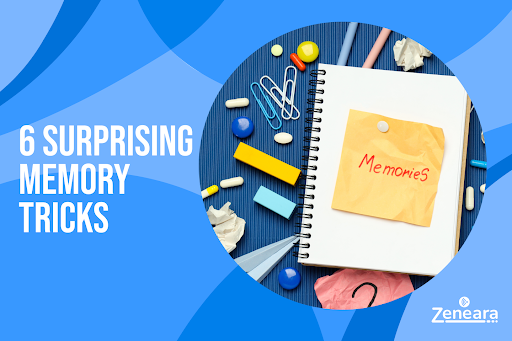It’s the kind of thing Hollywood thrives on… a person wakes up after an accident, staring into the void, unsure of who they are or where they’ve been. The suspense builds, the audience is hooked.
But real-life memory loss? It’s far less dramatic—and far more relatable.
No, you’re not likely to forget your entire past overnight.
But stress, anxiety, and depression can rob you of something just as unsettling: your everyday memory.
Those moments when you draw a blank on your coworker’s name, misplace your phone for the third time today, or struggle to focus on what someone just said? That’s your brain waving a red flag, asking for help.
I’m writing this because I’ve been there. I’ve felt the slow erosion of focus during stressful months and seen loved ones retreat into frustration as anxiety hijacked their memory.
I’m curious to know…
What’s one thing you’ve noticed affects your memory the most?
Is it stress, lack of sleep, or just feeling overwhelmed?
Let me know in your reply.
But here’s the thing:
Your brain is remarkable.
It’s not just a jumble of nerve cells, but a problem-solver, a healer, and a hard worker. Even when stress or mental health challenges throw it off track, it has the power to recover.
But here’s the deal: it can’t do it alone. You need to take charge and give it the help it needs.
Memory loss caused by stress, anxiety, or depression isn’t permanent. With the right actions, you can turn things around and get back on the right path.
Ways to Reclaim Your Memory
You’ve probably heard the usual advice—eat brain-boosting foods, exercise, and sleep more. And I’ve previously talked about how reducing fluoride intake can improve memory.

While these are important, let’s dive into some lesser-known strategies that can help rebuild your memory and focus. These are the tools your brain wishes you knew about:
#1 The Power of Smell
Certain scents, like rosemary, lemon, or even cinnamon, can stimulate the hippocampus… the part of your brain responsible for memory. Diffusing essential oils while you work or taking a whiff before tackling a task can spark clarity.
Pro tip: keep a small vial of rosemary oil at your desk and breathe it in during brain fog moments.
#2 Switch Your Dominant Hand

One of the simplest ways to create new neural pathways is by challenging your brain to work differently.
Use your non-dominant hand for tasks like brushing your teeth, writing a grocery list, or eating. This small change forces your brain out of autopilot, increasing activity in the memory-related areas.
#3 Finger-Tap Exercise (My Favorite)
Hold your hands up: Start with both hands raised in front of you, palms facing inwards.
Touch your thumb to each fingertip:
First, touch the tip of your thumb to the tip of your index finger (the one next to your thumb).
- Then, move your thumb to touch the tip of your middle finger (the tallest one).
- Next, touch your ring finger (the one next to your pinky).
- Finally, touch your pinky finger (the smallest one).
Reverse the sequence: After touching your pinky, move backward—touch your ring finger, then your middle finger, and finally your index finger.
Repeat: Do this several times, starting slow and then speeding up as you get the hang of it.
This movement engages coordination and focus, stimulating both sides of your brain. It’s simple, but surprisingly effective!
#4 Talk to Yourself (Yes, Out Loud)

Before you judge, hear me out. Narrating what you’re doing, even in a whisper, helps encode those actions into memory.
For example, when you put your keys down, say, “I’m putting my keys on the kitchen counter.” It sounds silly, but research shows self-talk strengthens cognitive awareness, reducing those “where did I put that?!” moments.
#5 The ‘Backwards Day’ Trick
Before bed, try retracing your day in reverse. Start with what you did right before climbing under the covers and work backward, recalling meals, conversations, and errands.
This isn’t just great for memory… it’s like stretching your brain after a long day, and it primes you for better sleep.
#6 Write by Candlelight Once a Week
This one’s both nostalgic and neurologically fascinating. Writing in low light forces your brain to work harder to focus, which boosts neuroplasticity—the brain’s ability to adapt and grow. Bonus: it can feel deeply meditative and is a great way to unwind before bed.
Final Thoughts
Memory isn’t just about recalling facts or details. It’s about holding onto who you are and what connects you to the people you love. While mental health struggles can cloud your mind, they don’t have to define your story.
Your brain is resilient, and with curiosity, care, and the right tools, you can give it the support it needs to shine.
Here’s to a sharper, calmer, more focused you. Ready to give your brain the love it deserves? Start small, stay curious, and watch the difference unfold.





